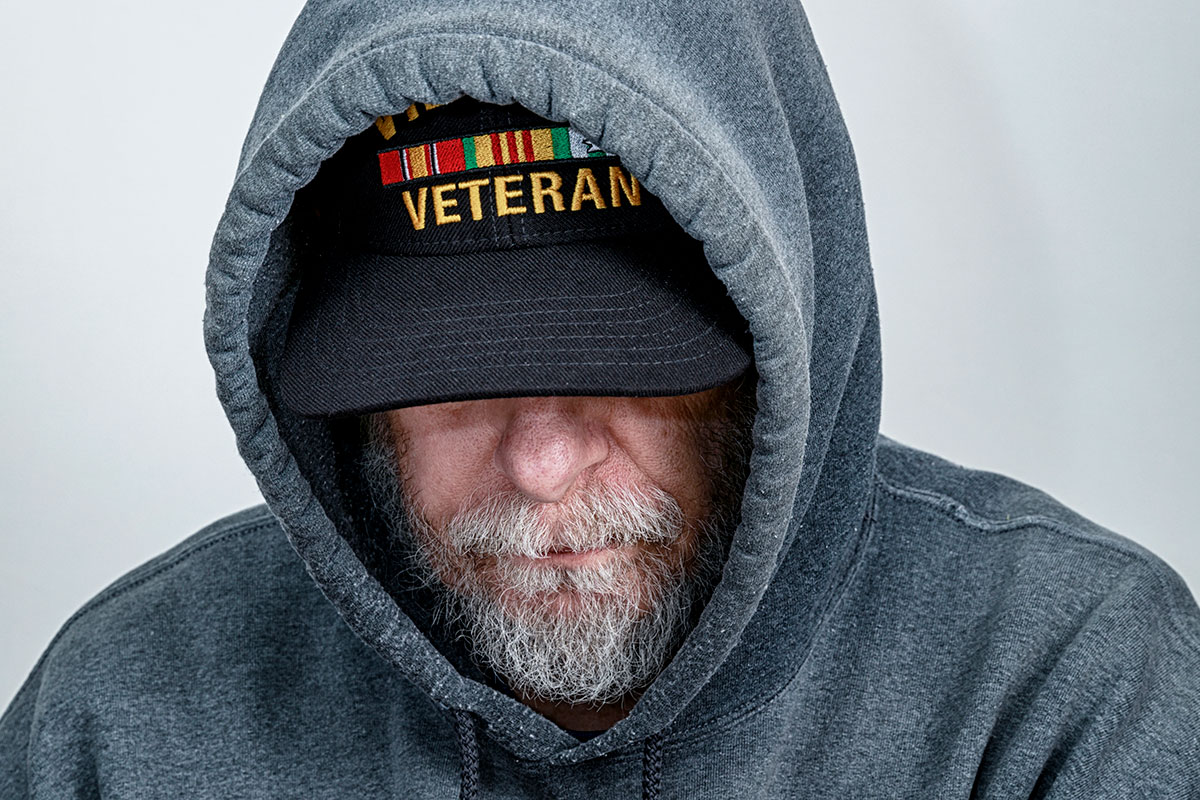Two years ago, Lena Verdeli, Associate Professor of Psychology & Education, began pilot-testing a new treatment to help military veterans cope with the stresses of transitioning to civilian life. Called IPC-3, the method is an abbreviated, three-session form of interpersonal therapy (IPT), which Verdeli, Director of TC’s Global Mental Health Lab, uses in her work with people displaced by war, natural disaster and other events.
The thinking behind the shorter format was that veterans are often reluctant to seek help because of the stigma surrounding mental health issues and would be likelier to respond to an approach that emphasizes discussion of here‐and‐now issues of adjustment to civilian life rather than mental disorders.

PEER-TO-PEER APPROACH Lena Verdeli, Associate Professor of Psychology & Education, is hopeful that student veterans can draw on the IPC-3 method to provide mentoring to other student veterans. (Photo: TC Archives)
Early findings suggested that IPC-3 was effective — and now Verdeli has more positive evidence as a result of a study of 20 students who are military veterans who were treated using the method. The study was carried out at TC’s Dean Hope Center for Educational & Psychological Services under the auspices of the College’s Resilience Center for Veterans and Families, which is directed by George Bonanno, Professor of Clinical Psychology. Verdeli and Dean Hope Center Director Dinelia Rosa are the Resilience Center’s Co-Directors of Clinical Services. “For many, their elevated depression, distress and even PTSD symptoms improved,” says Verdeli. “Perhaps even more importantly, those who needed more treatment were likelier to seek it out because they had had a good first experience.”
For many, their elevated depression, distress and even PTSD symptoms improved. Perhaps even more importantly, those who needed more treatment were likelier to seek it out because they had had a good first experience.
— Lena Verdeli, Associate Professor of Psychology & Education
Next up, Verdeli says, is an innovative new study to further validate the method — an effort in which student veterans will be trained to mentor other student veterans using a modified version of IPC-3. The study is being conducted with VITAL, an initiative that provides a multitude of services and benefits to student veterans through a partnership between the New York Harbor Healthcare System and local colleges. It will take place at the James J. Peters Department of Veterans Affairs Medical Center in the Bronx and the University of Utah.
“IPC-3 will not make the mentors into clinicians — this is not their role,” says Verdeli. “Rather, it will provide them with structure and language to explore current sources of distress in the lives of student veterans, such as losses, life changes, disputes and loneliness, which may interfere with adjustment to civilian life, and help the veterans clarify what pains them, mobilize resources, problem-solve, and break social isolation.” She adds that the trial may have particular relevance to the experience of veterans during the COVID pandemic.
“With COVID, many people may feel trapped in their apartments, quite lonely and cut off. For veterans, it may be even more difficult. They are used to the discipline of military life — being outside, constantly with others, in a very proscribed daily routine. Now they’re dealing with unstructured time, lack of stimulation and loneliness.”
— Lena Verdeli, Associate Professor of Psychology & Education
“With COVID, many people may feel trapped in their apartments, quite lonely and cut off,” she says. “For veterans, it may be even more difficult. They are used to the discipline of military life — being outside, constantly with others, in a very proscribed daily routine. Now they’re dealing with unstructured time, lack of stimulation and loneliness.”
Both studies — the one recently completed, and the new one involving mentors — are being funded by the Starbucks Corporation, a strong supporter of veterans and military families.
